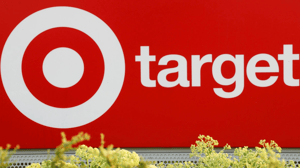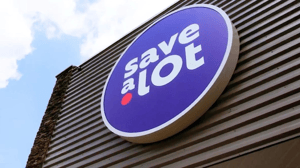How Energy-Efficient Technology Can Boost the Bottom LineHow Energy-Efficient Technology Can Boost the Bottom Line
Sustainability is a key differentiator as consumers choose what to buy and where they buy it. So what does this mean for food manufacturers and grocers?
November 11, 2021

Sponsored by Liebherr
Consumer interest in sustainable practices and products has been steadily growing in recent years, but in 2020, the environment became a greater focus than ever: According to Forrester data, one third of survey respondents say they now spend more time thinking about the climate than they did before the pandemic.
Consumer shopping habits reflect these priorities. A 2020 report from New York University’s Center for Sustainable Business in partnership with IRI found that sustainability-marketed products have continued to drive outsized growth in CPG amid the pandemic, and according to a 2020 report from IBM’s Institute for Business Value in association with the National Retail Federation, nearly 60% of consumers are willing to change their shopping habits to reduce environmental impact. This means sustainability is a key differentiator as consumers choose what to buy and where they buy it.
So what does this mean for food manufacturers and grocers? How can they drive conversion and retention among environmentally conscious consumers while keeping their margins in mind?
Energy efficiency takes precedence
Consumers don’t shy away from doing their research when it comes to going green. Forrester found that 68% of highly empowered consumers plan to step up their efforts to identify brands that reduce environmental impact, and 61% say they seek out energy-efficient labels when making purchases.
Especially for grocers and frozen food manufacturers, energy consumption is a key variable in the sustainability equation. Commercial refrigerators and freezers account for a significant portion of grocers’ energy consumption—about 40% to 60%, according to The Environmental Protection Agency (EPA).
Beyond consumer concerns, high energy consumption can eat into margins, too. The EPA estimates that, for the average supermarket, a 10% reduction in energy costs could increase net profit margins by 16%. And as many grocers have installed additional refrigerators and freezers amid the pandemic, the need to seek efficient solutions is greater than ever. This includes space efficiency, too—when installing new appliances, managing the floor plan while maximizing display area is key.
Sustainability is important to consider when seeking a supplier for refrigerators and freezers. For example, Liebherr, the world leader in commercial refrigeration, has recently committed to achieve carbon neutrality in its operations and facilities by 2035. And this sustainable mission extends to commercial solutions for retailers and manufacturers alike; all Liebherr appliances meet or exceed ENERGY STAR® requirements for efficiency and performance.
Key solutions make a difference
In short, reducing energy consumption is a great way to decrease emissions and costs simultaneously. For any frozen food manufacturer or retailer with any consumer base, shifting to efficient technologies can be a boon to the bottom line. And by turning to a trusted supplier for dependable, sustainable solutions, going green can mean smoother operations, too.
Industry leader Liebherr is a one-stop shop for commercial refrigerators and freezers that combine high performance with a lower carbon footprint. With plug-in solutions such as multi-deck freezers, checkout coolers, upright freezers, bakery coolers and more, Liebherr is perfectly positioned to support food and beverage manufacturers and retailers in keeping margins high and emissions low. What’s more, in addition to reducing energy consumption, the dependability of Liebherr appliances can mean less food waste and less labor, too.
Sustainable solutions are better for everyone: for manufacturers, retailers, consumers and the environment. To learn more about solutions from the experts at Liebherr, click here.
You May Also Like




